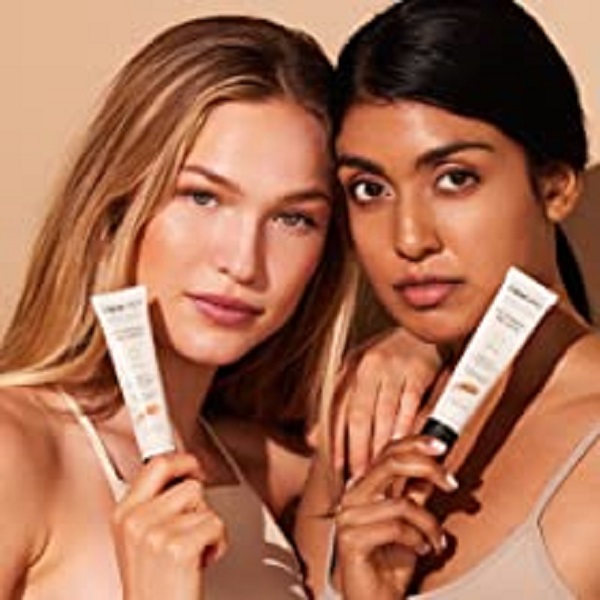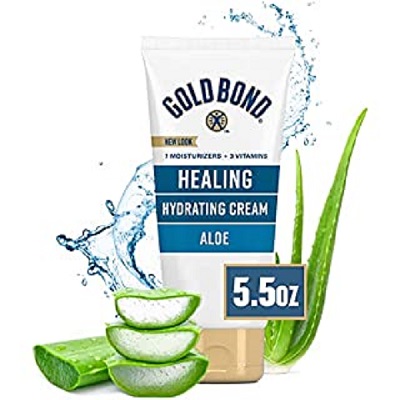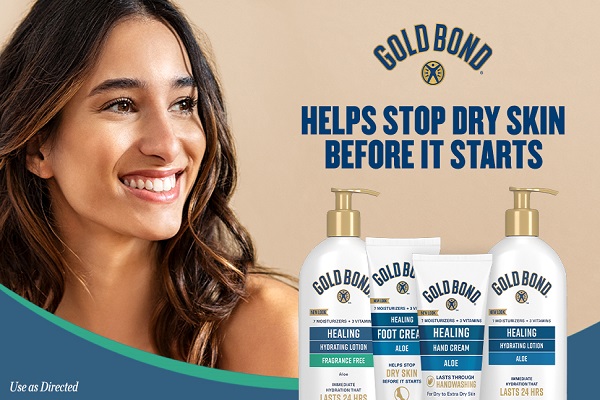
Mineral sunscreens and chemical sunscreens are two different types of sunscreen. Mineral sunscreens use zinc oxide or titanium dioxide to physically block the sun’s rays. Chemical sunscreens, on the other hand, use ingredients like avobenzone to absorb the sun’s rays.
Both types of sunscreen are effective at protecting your skin from the harmful effects of the sun. But there are some key differences between them that you should be aware of before you choose which one to use.
When it comes to sun protection, there are two main types of sunscreen: mineral and chemical. But what’s the difference between them?
Mineral sunscreen works by reflecting and scattering UV rays away from the skin. This type of sunscreen typically contains zinc oxide or titanium dioxide.
Chemical sunscreen, on the other hand, absorbs UV rays and then converts them into heat, which is then released from the skin. The most common active ingredients in chemical sunscreens are avobenzone, octisalate, octocrylene, oxybenzone, and homosalate.
So which type of sunscreen is better? Both have their pros and cons.
Mineral sunscreens tend to be more natural and less irritating to the skin. They also provide broad-spectrum protection against both UVA and UVB rays. However, they can be more difficult to apply evenly and can leave a white cast on the skin.
Chemical sunscreens are easier to apply and don’t usually leave a white cast, but they can be more irritating to sensitive skin types. And since they rely on chemicals to absorb UV rays, some worry that they may be harmful if absorbed into the body.
At the end of the day, it’s up to you to decide which type of sunscreen is right for you. If you have sensitive skin or are concerned about potential health risks associated with chemical sunscreens, mineral sunscreens may be a better option for you. But if you prefer a lighter-weight formula that’s easy to apply, chemical sunscreens might be more your style.
Mineral Vs Chemical Sunscreen : Find the Difference
How Can You identify a Sunscreen is Chemical Or Mineral?
When it comes to sunscreen, there are two main types: chemical and mineral. So, how can you tell which type of sunscreen you are using? Here are a few key differences between the two:
- Chemical sunscreens work by absorbing UV rays, while mineral sunscreens work by reflecting them.
- Chemical sunscreens usually contain active ingredients like oxybenzone and octinoxate, while mineral sunscreens usually contain zinc oxide or titanium dioxide.
- Mineral sunscreens tend to be more physical in nature (i.e., they sit on top of the skin), while chemical sunscreens are often more liquid-y and can be absorbed into the skin.
- Because of their composition, mineral sunscreens often have a thicker consistency and may leave a white cast on the skin, while chemical sunscreens are typically lighter and easier to spread on the skin.
- Many people find that mineral sunscreens provide better protection against UV rays, although this is still debated among experts.
What’s Better for You – Chemical Or Mineral Sunscreen?
There are a lot of different types of sunscreen on the market these days. So, which one is the best for you? Should you choose a chemical sunscreen or a mineral sunscreen?
Here’s a breakdown of the differences between these two types of sunscreens to help you make the best decision for your needs:
Chemical sunscreens work by absorbing UV rays and converting them into heat, which then gets released from the skin. Some common active ingredients in chemical sunscreens include avobenzone, octisalate, octocrylene, homosalate and oxybenzone.
Pros : Chemical sunscreens are typically lighter in texture and easier to apply evenly to the skin. They’re also less likely to leave behind a white cast on your skin.
Cons : Because they rely on absorption to work, chemical sunscreens can be more irritating to the skin and may cause allergic reactions in some people. They can also be more harmful to marine life when they wash off in the water (more on that below). And, because they don’t provide an immediate barrier against UV rays like mineral sunscreens do, you’ll need to reapply them more often throughout the day (usually every 2 hours).

Do Dermatologists Recommend Mineral Or Chemical Sunscreen?
There is much debate over which type of sunscreen is the best. Dermatologists generally recommend using a sunscreen with an SPF of 30 or higher, regardless of whether it is mineral or chemical based. The main difference between the two types of sunscreens is that mineral sunscreens use physical blockers to reflect and scatter sunlight, while chemical sunscreens use ingredients that absorb ultraviolet (UV) light.
Both types are effective at protecting the skin from UV rays, but there are some advantages and disadvantages to each. Mineral sunscreens tend to be less irritating to the skin than chemical sunscreens and they provide immediate protection upon application. They are also less likely to cause allergic reactions.
However, they can be more difficult to apply evenly and may need to be reapplied more often than chemical sunscreens. Mineral sunscreens can also be more expensive than chemical sunblock’s. Chemical sun blocks are typically easier to apply evenly and don’t need to be reapplied as often as mineral sunscreens.
They are also typically less expensive than their mineral counterparts. However, they can be more irritating to the skin and may cause allergic reactions in some people. Chemical sunblocks may also take longer to start working after being applied (usually about 20 minutes).
Dermatologist’s Updates:
Mineral sunscreen is a type of sunscreen that uses minerals as active ingredients. The most common minerals used in mineral sunscreens are zinc oxide and titanium dioxide. These minerals work by reflecting and scattering the sun’s rays away from the skin.
Mineral sunscreens are often preferred over chemical sunscreens because they are less likely to irritate the skin and they provide broad-spectrum protection against both UVA and UVB rays. However, one downside of mineral sunscreens is that they can be more difficult to apply evenly, resulting in a white cast on the skin. If you’re looking for a natural and effective way to protect your skin from the sun, mineral sunscreen is a great option!
Mineral Sunscreen Vs Chemical Sunscreen
There are two types of sunscreen: mineral and chemical. Both offer protection from the sun’s harmful ultraviolet (UV) rays. But there are differences between them.
Mineral sunscreen contains active ingredients that reflect or scatter sunlight, such as zinc oxide and titanium dioxide. Chemical sunscreen absorbs UV rays with chemicals like avobenzone, octocrylene, homosalate, and octisalate. Both types of sunscreen work well to protect your skin from UV damage.
But mineral sunscreen has some advantages over chemical sunscreen. Mineral sunscreen is less likely to irritate your skin than chemical sunscreen. It’s also more effective at blocking UVA rays, which can cause premature aging and wrinkles.
And it doesn’t contain any harmful chemicals that could be absorbed into your body. If you’re looking for a safe and effective way to protect your skin from the sun, mineral sunscreen is a good choice.

Mineral Vs Chemical Sunscreen Dermatologist
When it comes to sunscreen, there are two main types: mineral and chemical. Both have their pros and cons, but which one is right for you? Here’s a breakdown of the differences between mineral and chemical sunscreens, according to dermatologists.
Mineral sunscreens contain active ingredients like zinc oxide or titanium dioxide. These ingredients work by sitting on top of the skin and reflecting UV rays away from the body. Mineral sunscreens are often physical sunscreens, meaning they provide both UVA and UVB protection.
They’re also hypoallergenic and non-comedogenic (meaning they won’t clog pores), making them a good choice for people with sensitive skin or acne-prone skin. However, mineral sunscreens can be more difficult to apply evenly and may leave a white cast on the skin. They may also need to be reapplied more frequently than chemical sunscreens, since they can rub off easily.
Overall, though, mineral sunscreens are considered safe and effective for both adults and children. Chemical sunscreens work by absorbing UV rays before they can damage the skin. The most common active ingredients in chemical sunscreens are avobenzone, oxybenzone, octisalate, octocrylene, homosalate, and octinoxate.
Chemical sunscreens typically offer broad-spectrum protection against both UVA and UVB rays. While chemical sunscreens are generally easy to apply and don’t leave behind a white cast, they can be irritating to some people’s skin (especially those with sensitive skin). In addition, some of the chemicals in these products have been shown to potentially disrupt hormones in the body (though more research is needed on this).
For these reasons, many experts recommend using mineral sunscreen instead of chemical sunscreen whenever possible – especially if you’re using it on your face or on young children.
Best Mineral Sunscreen
There are a lot of sunscreens on the market these days. How do you know which one is best for you? The answer may lie in the ingredients.
Mineral sunscreens, also sometimes called physical sunscreens, use minerals like zinc oxide and titanium dioxide to reflect and scatter UV rays away from your skin. Chemical sunscreens, on the other hand, work by absorbing UV rays into their ingredients and then releasing that energy as heat. So, what are the benefits of mineral sunscreen?
First of all, they don’t usually sting or burn when you put them on, unlike some chemical sunscreens. They’re also less likely to irritate sensitive skin. And since they sit on top of your skin rather than being absorbed into it, they’re less likely to cause an allergic reaction.
Additionally, mineral sunscreens provide broad-spectrum protection against both UVA and UVB rays. And finally, they don’t break down as quickly in sunlight so you can stay protected longer. If you’re looking for a good mineral sunscreen, look for one that contains zinc oxide or titanium dioxide as its active ingredient (you might see it listed as “non-nano” on the label).

Pros And Cons of Mineral Sunscreen
There are many different types of sunscreen on the market today. Some people prefer chemical sunscreens, while others prefer mineral sunscreens. So, what is the difference between these two types of sunscreen?
And what are the pros and cons of each? Chemical sunscreens work by absorbing UV rays and converting them into heat, which is then released from the skin. Mineral sunscreens work by reflecting UV rays away from the skin.
Both types of sunscreen are effective at protecting against UV damage, but there are some key differences between them. One of the main advantages of mineral sunscreen is that it does not contain any chemicals that could potentially be harmful to the skin.
- Chemical sunscreens often contain active ingredients like oxybenzone and octinoxate, which have been linked to health concerns like hormone disruption and cancer .
- Mineral sunscreens, on the other hand, use physical blockers like zinc oxide and titanium dioxide to protect the skin. These ingredients are considered safe for use on both adults and children
- Another advantage of mineral sunscreen is that it provides broad-spectrum protection against both UVA and UVB rays.
- Chemical sunscreens typically only provide protection against UVB rays
UVA rays can also cause damage to the skin, so it’s important to choose a sunscreen that offers protection against both types of rays. However, there are also some disadvantages to using mineral sunscreen.
One downside is that it can be more difficult to apply than chemical sunscreen. It can also be more visible on the skin, so if you’re looking for a “no-makeup” look, mineral sunscreen may not be ideal. Additionally, some people find that mineral sunscreens don’t feel as smooth or “silky” as chemical sunscreens.
So, should you use a mineral or chemical sunscreen?
Mineral Sunscreen for Face
When it comes to sun protection for your face, you have a lot of options. But if you’re looking for the most natural and gentle option possible, mineral sunscreen is the way to go. Unlike chemical sunscreens that rely on harsh chemicals to protect your skin, mineral sunscreens use physical ingredients like zinc oxide and titanium dioxide to reflect UV rays away from your skin.
Not only are these ingredients more natural and gentle, but they’re also more effective at protecting your skin from damage. In fact, studies have shown that mineral sunscreens provide better protection against both UVA and UVB rays than their chemical counterparts. And since they don’t rely on chemicals to work, they’re also less likely to cause irritation or other side effects.
If you’re interested in trying a mineral sunscreen for your face, there are plenty of great options available.
Is Chemical Sunscreen Bad
Summertime means fun in the sun, but it also means protecting your skin from harmful UV rays. Most people rely on sunscreen to do this, but did you know that some sunscreens can actually be harmful? Many sunscreens contain chemicals like oxybenzone and octinoxate, which have been linked to hormone disruption and other health problems.
These chemicals can be absorbed through the skin and enter the bloodstream, where they can wreak havoc on our hormones. What’s more, many chemical sunscreens are not effective at blocking UV rays, meaning you could be exposing yourself to damage without even realizing it. So what’s a safe and healthy way to protect yourself from the sun?
Turn to mineral-based sunscreens instead. These formulas contain ingredients like zinc oxide or titanium dioxide, which provide superior protection against UV rays without any of the health concerns associated with chemical sunscreens. And don’t forget to reapply often – no matter what kind of sunscreen you’re using!
Is Mineral Sunscreen Better
There are a lot of sunscreen options on the market these days. So, you may be wondering – is mineral sunscreen better? The answer is – it depends.
Mineral sunscreens (also known as physical sunscreens) work by reflecting and scattering UV rays away from the skin. They usually contain ingredients like zinc oxide or titanium dioxide. On the other hand, chemical sunscreens work by absorbing UV rays and converting them into heat, which is then released from the skin.
Chemical sunscreens usually contain ingredients like avobenzone, oxybenzone, or octinoxate. So, which one is better? Here are a few things to consider:
– Mineral sunscreens tend to be more natural and gentle on the skin. They are also less likely to cause irritation or allergic reactions. However, they can be more difficult to apply evenly and may leave a white cast on the skin.
– Chemical sunscreens are typically easier to apply evenly and don’t usually leave a white cast on the skin. However, they can be more irritating to the skin and some people may have an allergic reaction to them. In addition, some chemical sunscreens can actually increase your risk of developing cancer if they are not used properly (i.e., if they are not applied evenly).
Conclusion
When it comes to sunscreen, there are two main types: mineral and chemical. Both have their own benefits and drawbacks, so it’s important to choose the right one for you. Mineral sunscreens work by reflecting light away from the skin, while chemical sunscreens absorb light.
This means that mineral sunscreens are less likely to irritate the skin and are better for people with sensitive skin. They also don’t need to be reapplied as often as chemical sunscreens. However, they can be more difficult to apply evenly and can leave a white cast on the skin.
Chemical sunscreens are easier to apply evenly and don’t leave a white cast, but they need to be reapplied more often. They can also be more irritating to the skin, so they’re not ideal for people with sensitive skin. Ultimately, it’s up to you to decide which type of sunscreen is right for you.












